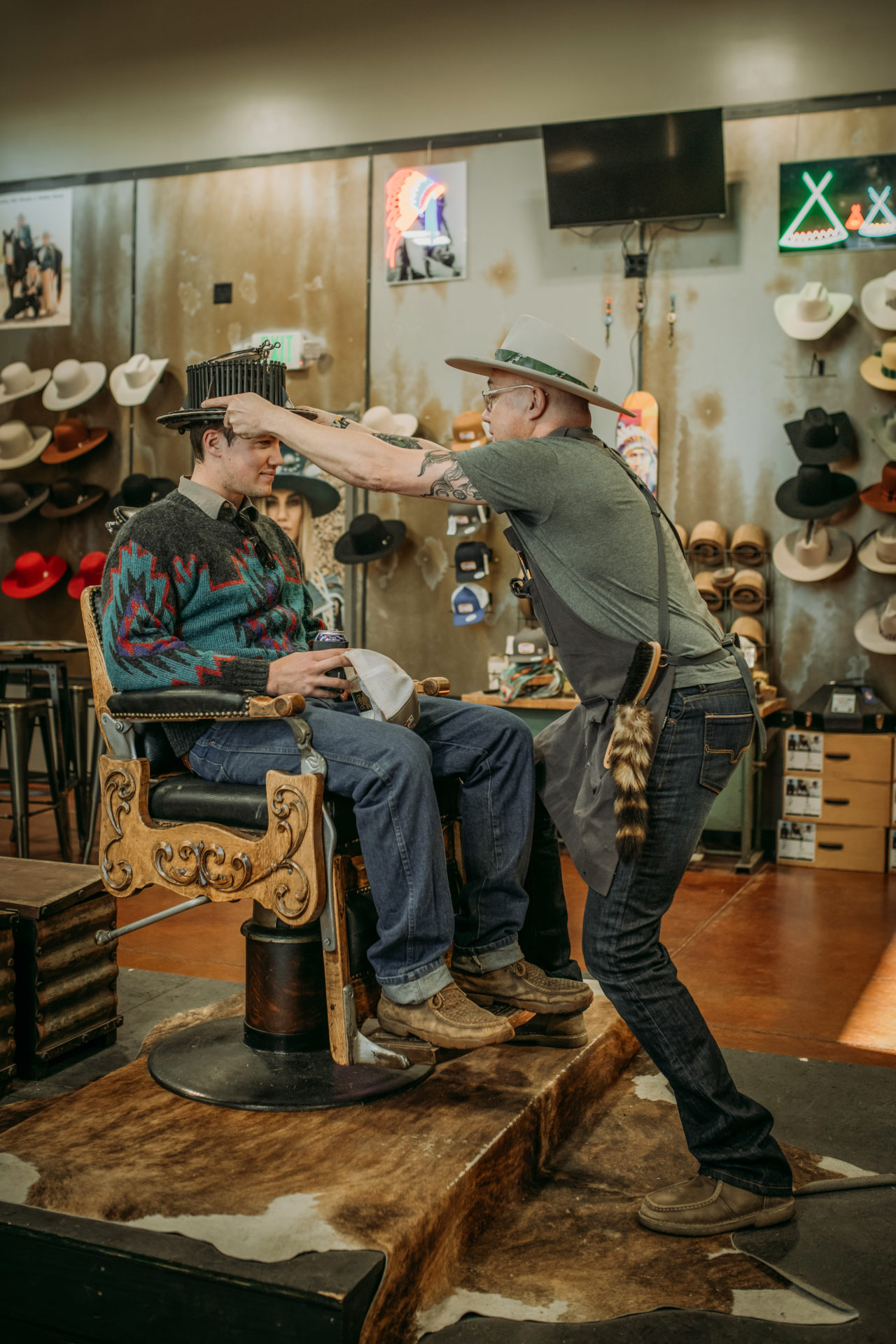– Renderings courtesy of Page –
Mental health treatments today start with spreading the message that it’s OK not to be OK.
Recent efforts over the past decade or so to expand access to mental health care are rooted in greater societal awareness. Social media’s normalization of mental health concerns, especially with posts from influencers talking about their struggles, have lowered the cultural stigma attached to mental health.
As it becomes acceptable to talk with friends or family about things that are troubling us, and even admitting to seeing a therapist, the longtime taboo about mental illness and the hesitancy to ask for help is slowly being whittled away.
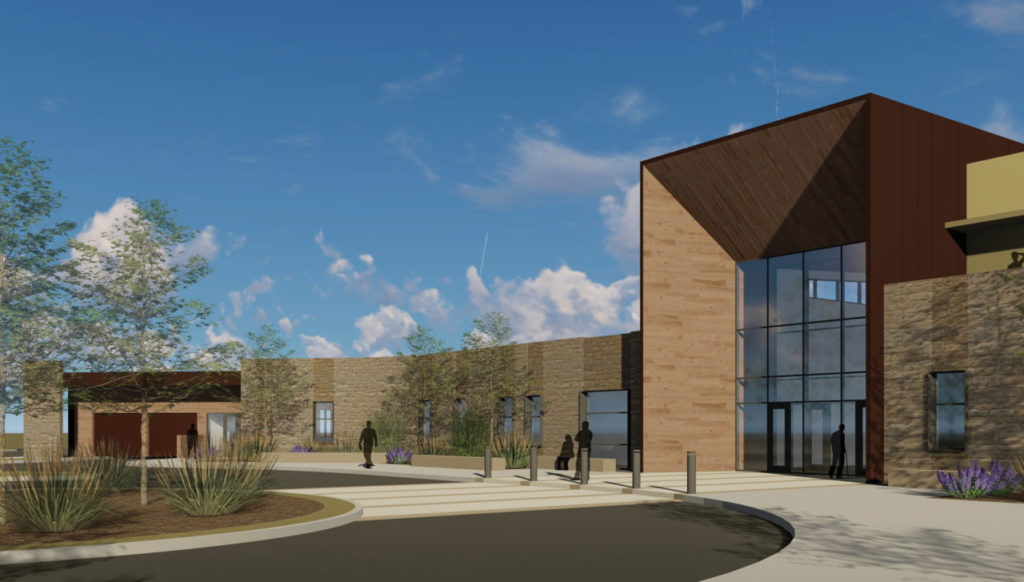
UCHealth psychiatrist Matthew Shirazi believes these developments help providers get better at diagnosis because people are encouraged to talk about their mental wellbeing with care providers.
“For a long time, western culture, and western U.S. culture particularly, has been about rugged individualism. It keeps folks from feeling it’s okay to ask for help or admitting they have a problem because that’s seen as a moral failure,” Shirazi says.
North Range Behavioral Health in Weld County helps raise awareness with billboards at bus stops and park benches.
“The billboards are remarkable for getting out the invitation to come for treatment,” says North Range psychiatric clinical nurse specialist Dan Frantz.
Community outreach and networking events where people can meet therapists and doctors help too, says North Range marketing and community outreach director Micaela Sanchez.
“Once you meet a person who has training in supporting things you’re experiencing, that’s a safe face,” Sanchez says. “And the broader culture is shifting: the people we see, the sports and movie stars who are being more open about mental health, that starts to normalize it.”
Putting words into action, North Range developed a protocol called “Change Your Words,” an effort to put timeworn negative associations about mental health to rest.
“We as prescribers don’t say, ‘drug store’ when we call in a prescription for a patient. We say, ‘pharmacy.’ It’s just turning the knobs a little bit to think of it as medication, not drugs,” Frantz says.
Word choice includes education on suicide prevention. “We don’t say, ‘committing suicide,’ because that connotes a crime is being committed. If we’re holding on to the shame, that stops the conversation about mental health,” Sanchez says.
As the idea of mental health is normalized, providers say their patient load is increasing.
Mental health and its often-related substance abuse disorders have long been on Colorado’s healthcare radar, but Northern Colorado communities are working to add providers and treatment facilities, increasing the chance that people who would benefit from psychiatric care can find pathways to help.
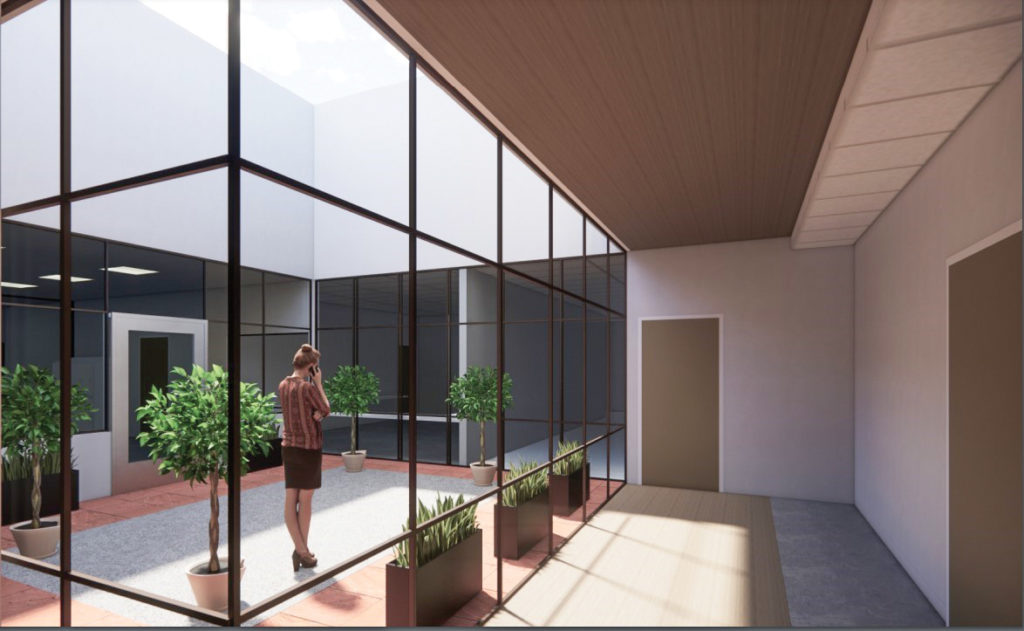
Integrated medical teams focus on both the mind and the body
Doctors are more aware that mental and physical health problems both take a toll on our bodies.
“Physicians and psychiatric care providers don’t stay in their silos anymore. There is high sensitivity that if we don’t get the mental health piece treated, the patient will be more and more complicated,” Frantz says.
This also means mental health providers watch out for physical problems as well. Frantz says that when he’s evaluating a psychiatric issue, he often spends more time making sure there isn’t an underlying medical problem that needs to be treated.
“These things go back and forth: Physical pain causes sadness,” he says.
As a consultation psychiatric liaison at UCHealth Medical Center of the Rockies and Greeley Hospital, Shirazi’s daily patient load covers between 5-10% of inpatients who have psychiatric issues that were discovered after a physical problem or were triggered by their hospitalization.
The service also evaluates patients who develop neuropsychiatric symptoms when undergoing treatment for medical, surgical and gynecologic illnesses.
“We see an intersection of neurology and mental health, including folks with strokes, brain injuries, older people with dementia or agitated behavior and delirium related to medical causes,” he says.
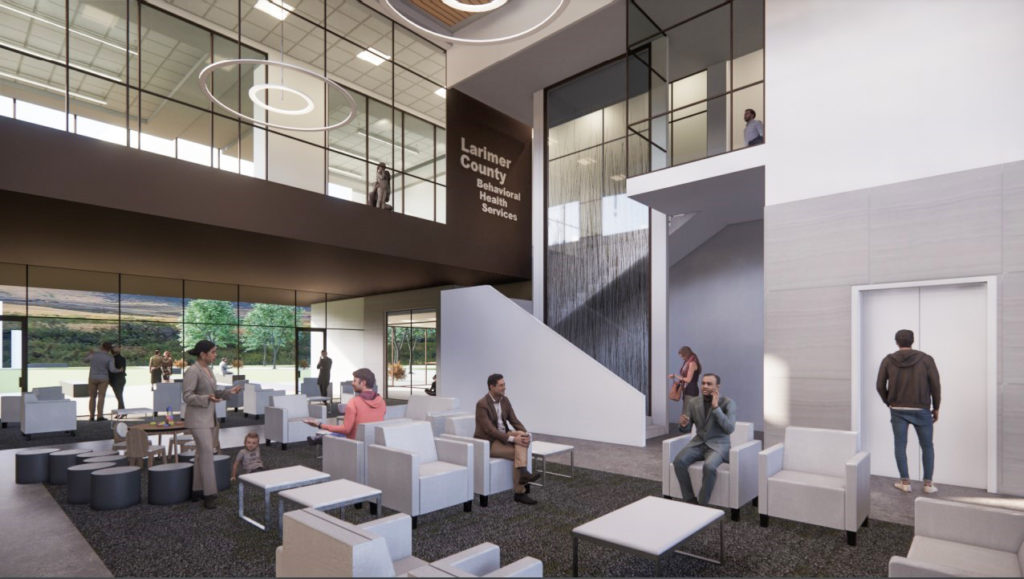
Community health systems: the bedrock of mental health care
A 2019 report from Mental Health Colorado estimates that 380,000 Coloradans do not have access to mental health care, with the single biggest barrier cited as cost of treatment. Those numbers have increased since the onset of the COVID-19 pandemic.
Community health systems were created in the ‘50s and ‘60s, part of President John F. Kennedy’s vision to standardize mental health care for all Americans. The centers were mandated to serve what’s called a “catchment area,” based on sewage system boundaries, Frantz explains.
Weld County Mental Health is the “catchment” for Weld County, although names have changed over the years to make them more inviting, hence North Range and SummitStone Health Partners, which serves Larimer County.
Community health systems like North Range and SummitStone comprise two of the state’s 17 community mental health systems. They provide comprehensive mental health and addiction services to people of all ages and serve people with insurance, Health First Colorado (formerly Medicaid), Medicare, people who don’t have healthcare insurance and those who pay out-of-pocket.
Although North Range covers Weld County and SummitStone serves Larimer County, Frantz says there’s a high degree of cooperation between counties.
North Range runs the largest substance abuse detox facility in Colorado. Based at its main center at Island Grove, it is known for a collaborative approach with warm handoffs between healthcare systems in Larimer County as well as residents of the City and County of Denver because there is often a shorter wait time to be seen, Frantz says.
The North Range detox unit is unique because it treats withdrawal symptoms using a social model instead of a hospital model.
The social model includes group and individual therapy and reprogramming social interactions through therapy where people learn productive ways to manage stress and life issues without resorting to medication. People with substance abuse disorders undergoing withdrawal are transferred to a hospital if symptoms become too severe.
There is a range of treatment options in place throughout 18 Weld County facilities, including the Crisis Stabilization Services Campus, a step below in-patient admissions, which includes short term treatment for suicidal thoughts. True North Adult Residential and Intensive Substance Use Program is a 30-day in-patient treatment for substance abuse rehabilitation.
In addition to working with the whole family system, from comprehensive prenatal care, withdrawal processes for women while pregnant or with children, to aging-in-place where seniors live in their home or community safely and independently, North Range also offers services in the jails, including mental health support for those who are incarcerated or in transition to returning to a free society. The center also serves homeless populations at the Housing Navigation Center and has over 26 clinicians in public and private schools to assist counselors with students as well as providing mental health support for teachers and administration.
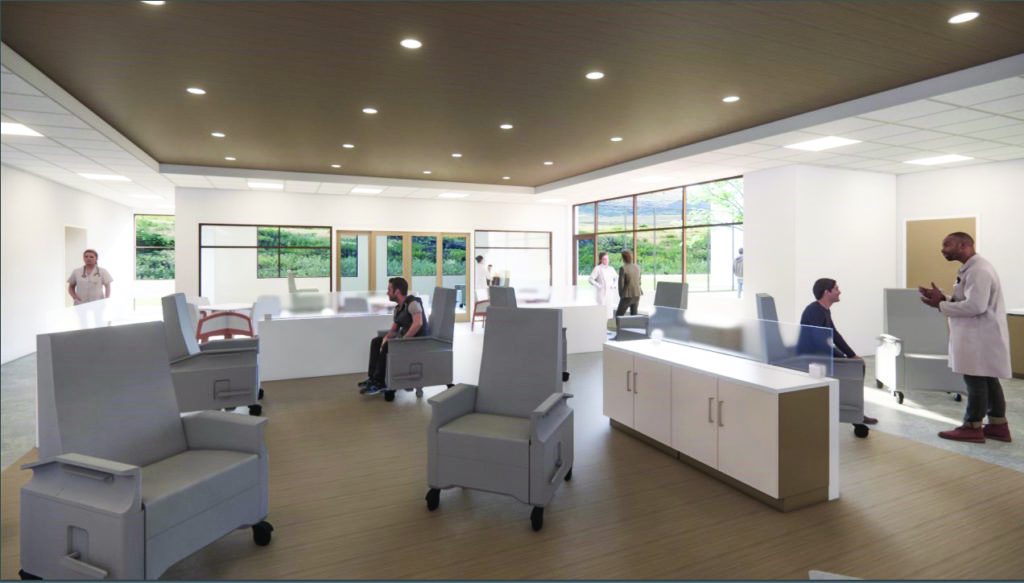
Finding mental health resources in Larimer County
Larimer County voters approved a ballot initiative in November 2018 for a 20-year funding stream generated from sales-and-use tax that’s designated for behavioral health.
SummitStone provides behavioral health services at locations in Fort Collins, Loveland and Estes Park for all ages, including a 24/7 mobile crisis unit, Garcia House, a residential treatment center for adults with co-occurring disorders and Spirit Crossing Clubhouse, which provides adults with behavioral health disorders support, teaching life skills to aid recovery.
In August 2023, the Longview Behavioral Health campus will open its Acute Care facility, in partnership with SummitStone and UCHealth, with first clients targeted for November. Future grant initiatives will address financial barriers, cover ancillary services and hopefully provide transportation to ensure client stability and recovery, Laurie Stolen, Director of Behavioral Health Services for Larimer County said in a community presentation.
The building’s design centers on an expansive view from the lobby to the mountains, offering a welcoming, safe environment that gives a sense of healing.
“In treatment of behavioral health, we know that how the building is situated on the site, how it opens up in back with windows and a feeling of outdoor respite and making connections to nature, are important to recovery,” Stolen said.
The 40-acre campus includes outdoor walking trails, seating areas and an outdoor amphitheater. The facility features a fitness room, therapy rooms and opportunities for expressive therapy through the use of creative arts to maximize stability, Stolen said. An open atrium brings in fresh air and sunlight.
Larimer worked with first responders and law enforcement personnel to ensure they have functional access to the facility. It’s hoped that the 64-bed acute care center will reduce stress on emergency rooms and criminal justice systems.
Levels of care include 24/7 walk-in availability, a behavioral health triage and bridge clinic, observation staff and a 16-bed crisis stabilization ward, which will help fill Larimer’s residential treatment gap, currently limited to the 16-bed Garcia House. Withdrawal management will be provided on two levels, social detox and medically monitored detox.
While services include a mix of individual and group therapy, medical treatment, and an on-site lab and pharmacy, the goal is to get people ages 4 and up back into the community.
“We know that long term care in a facility isn’t best practice,” Brian Ferrans, deputy executive director of Acute Care at Longview, says. “We want this to be the place where individuals are brought when they’re in a self-defined crisis for staff assessment.”
___________________________________________________
Emily Kemme is an award-winning novelist and Colorado food writer.




